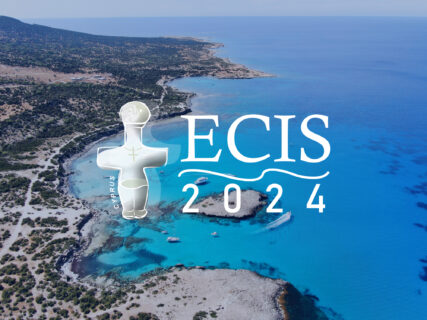Großer Erfolg bei der ECIS 2024: Drei Paper zur Veröffentlichung akzeptiert
Unsere Forschungsgruppe feiert einen großen Erfolg bei der diesjährigen European Conference on Information Systems (ECIS 2024): alle drei eingereichten Paper von Sandra Birnstiel, Runjie Xie und Jeanine Kirchner-Krath wurden nach einem kompetitiven Peer-Review Prozess zur Präsentation auf der Konferenz in Zypern und zur Veröffentlichung in den Konferenzproceedings akzeptiert.
Wir freuen uns schon sehr darauf, die Bandbreite unserer verschiedenen Forschungsthemen von der Gestaltung von Gamification im Teamsport über die Privacy-Herausforderungen des Metaversums bis hin zu Gestaltungsansätzen und Effekten von Informationssystemen als Behandlungsmethode gegen Prokrastination mit der internationalen IS-Community zu diskutieren und neue Perspektiven und Blickwinkel auf unsere aktuellen Forschungsprojekte zu erhalten!
Vertreten sind wir im Juni in Paphos im Einzelnen mit:
Designing Gamification for Team Sports: Mapping of the Problem Space and Design Recommendations
Autoren: Sandra Birnstiel, Lukas Steinkamp, Burkhard Dümler, Benedikt Morschheuser
Forschungsprojekt: Gestaltung und Evaluation von Gamification-Ansätzen für die Verwendung im Fußballtraining in Kooperation mit adidas
Link zu ResearchGate
Zusammenfassung:
Globally, we see an increasing disinterest among youth in participating in team sports due to a lack of enjoyment. Designing gamified information systems for team sports may counteract this development by increasing athletes’ motivation and enjoyment. While there has been extensive research on gamified applications for individual sports, the gamification of team sports remains largely unexplored. Therefore, we draw on design science research and explore the problem space by interviewing relevant soccer stakeholders (amateur players, coaches and sports psychologists). We complement these findings with a survey to assess their gamification preferences. Based on the gathered data, we systematically map the problem space and provide recommendations for designers. This research contributes to the lack of knowledge on gamifying team sports and provides valuable insights for practitioners by facilitating the creation of effective solutions. Furthermore, it lays a foundation for future research in the evolving landscape of design knowledge in this area.
Towards an ethical metaverse: A systematic literature review on privacy challenges
Link zu ResearchGate
Zusammenfassung:
Along with the increasing interest in the metaverse as a new space for social interaction, privacy challenges that arise from new forms of data collection and usage have received notable research interest. Still, researchers and practitioners lack a structured overview of these privacy challenges as a foundation to explore measures that allow for safe and protected interaction in an ethical metaverse. To bridge this gap, we conducted a systematic literature review. We find that interaction in the metaverse carries the risk of revealing more sensitive personal data than in the traditional Internet. Moreover, we identify metaverse privacy challenges on different stakeholder levels, which often mirror those from the traditional Internet. Nevertheless, the metaverse also introduces novel facets to existing challenges due to its unique characteristics. These facets are discussed across six essential dimensions of privacy. Based on our findings, we provide recommendations for building a safe and secure metaverse environment.
Combating Procrastination with Information Systems: A Systematic Review on Design Approaches and Effects
Autoren: Jeanine Kirchner-Krath, Sandra Birnstiel, Benedikt Morschheuser
Forschungsprojekt: Learn2Focus with Information Systems
Link zu ResearchGate
Zusammenfassung:
Procrastination, the act of postponing important tasks despite knowing the negative consequences, poses considerable risks to mental and physical well-being. Traditional procrastination treatments are time-consuming and often have high entry barriers for those affected. Consequently, information systems (IS) have emerged as an innovative approach to provide both guided and self-directed procrastination treatment. This study consolidates academic literature on IS design approaches for addressing procrastination and juxtaposes them with traditional behavioral, cognitive, and social support interventions. We reveal how IS can effectively assist individuals in combating procrastination, and shed light on the role of motivational design affordances. Our findings show that IS designs primarily address procrastination through behavioral strategies, yielding positive results in enhancing task efficiency. Yet, significant opportunities remain to explore the capabilities of adaptive and tailored IS design for cognitive benefits, delve into social support designs for overcoming procrastination, and explore motivational design to support functional IS against procrastination with hedonic experiences.
